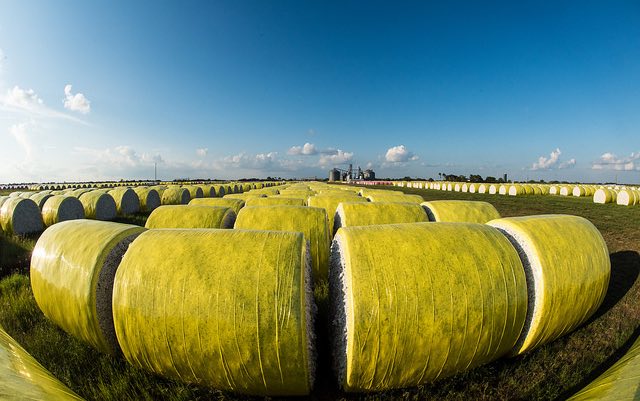In 2002, Brazil initiated a formal World Trade Organization (WTO) dispute settlement case against the United States. The case argued that by shielding domestic cotton producers from shifts in global prices, U.S. domestic cotton subsidy programs had created market distortions and contributed to a decline in global cotton prices.
The U.S. is the world’s third-largest cotton producer and the largest cotton exporter, and domestic cotton subsidy programs have long been a part of U.S. agricultural policy. Such domestic support programs have undergone a slew of changes over the decades to respond to shifting global contexts and domestic needs. But questions still remain regarding how effective these programs are at protecting domestic producers, as well as what their impact is on global markets and foreign producers. On January 29, the American Enterprise Institute (AEI) held a policy seminar to address these questions regarding cotton, peanuts, and dairy products as part of its AEI Agricultural Policy in Disarray paper series.
Joining panelists from North Carolina State University, AEI, Montana State University, and the University of California, Davis, IFPRI Senior Research Fellow Joseph Glauber discussed findings from his latest AEI paper, “Unraveling Reforms? Cotton in the 2018 Farm Bill.” The paper focuses on the history of U.S. cotton subsidy programs, as well as on proposed changes to these programs in the upcoming 2018 Farm Bill that could impact global cotton markets.
According to Glauber, research has largely borne out Brazil’s 2002 complaint, showing that the U.S. export market share for cotton nearly doubled over the period 1995–2002 and that U.S. cotton programs contributed to the fall in global cotton prices experienced since the 1990s. Foreign cotton producers suffered as a result of these falling prices, particularly in least-developed cotton-producing regions like West Africa.
In 2005, a WTO dispute settlement panel ruled that several U.S. domestic support programs for cotton did in fact contribute to lower world prices for cotton. Specifically, the panel determined that the cotton marketing assistance loan, the Countercyclical Payments Program, Step 2 payments, and market loss assistance payments all constituted price-contingent subsidies that caused significant distortion of global cotton markets. However, the panel did not find that direct payment and crop insurance subsidies contributed to lower global market prices, based on their conclusion that those programs were not price-contingent.
Following the panel’s rulings, the U.S. and Brazil reached an interim agreement to prevent the need for sanctions; this agreement included annual U.S. payments to Brazil to be used for training and capacity-building in Brazil’s cotton sector. In 2014, a settlement between the two countries was reached in which Brazil agreed to take no further WTO action on the cotton issue based on changes made in the U.S. cotton program the 2014 Farm Bill. The U.S. 2014 Farm Bill expires in September 2018; Congress is currently negotiating its replacement.
The 2014 Farm Bill included a number of big changes for U.S. cotton subsidies, including eliminating direct and countercyclical payments and tying marketing assistance loans more closely to world prices. In addition, the legislation established a new supplemental crop insurance program specifically for cotton producers: the Stacked Income Protection Plan (STAX). The plan protects against loss of cotton revenue due to area-related production losses, price declines, or both. The U.S. federal government funds a large part of this program, covering 80 percent of recipients’ premium costs and all of its delivery costs.
The U.S. cotton industry designed and promoted STAX during the 2014 Farm Bill debate. However, U.S. cotton producers have steadily grown less enamored with the program. In 2015, only 30 percent of eligible land area was enrolled in STAX, and enrollment has only declined in each subsequent year. As a result, the cotton industry has lobbied for changes to the STAX program; in 2015, the National Cotton Council attempted to replace STAX by having cottonseed designated as a “minor oilseed,” making cotton eligible for the price- and revenue-based income support programs enjoyed by other crop producers.
Now, the industry has a similar suggestion for the 2018 Farm Bill: Replacing STAX with a new income support program for “seed cotton.” This program would be partially paid for by eliminating generic base acre provisions, which have allowed producers who grow crops on areas formerly dedicated to cotton to be eligible for income support payments on those other crops.
Such changes would not only represent a substantial expenditure for the U.S. government, Glauber argues—they could also once again insulate U.S. cotton producers from global market signals. This could result in detrimental impacts on developing country producers and open the U.S. to further WTO disputes.
Sara Gustafson is a Communications Specialist with IFPRI’s Markets, Trade and Institutions Division.







